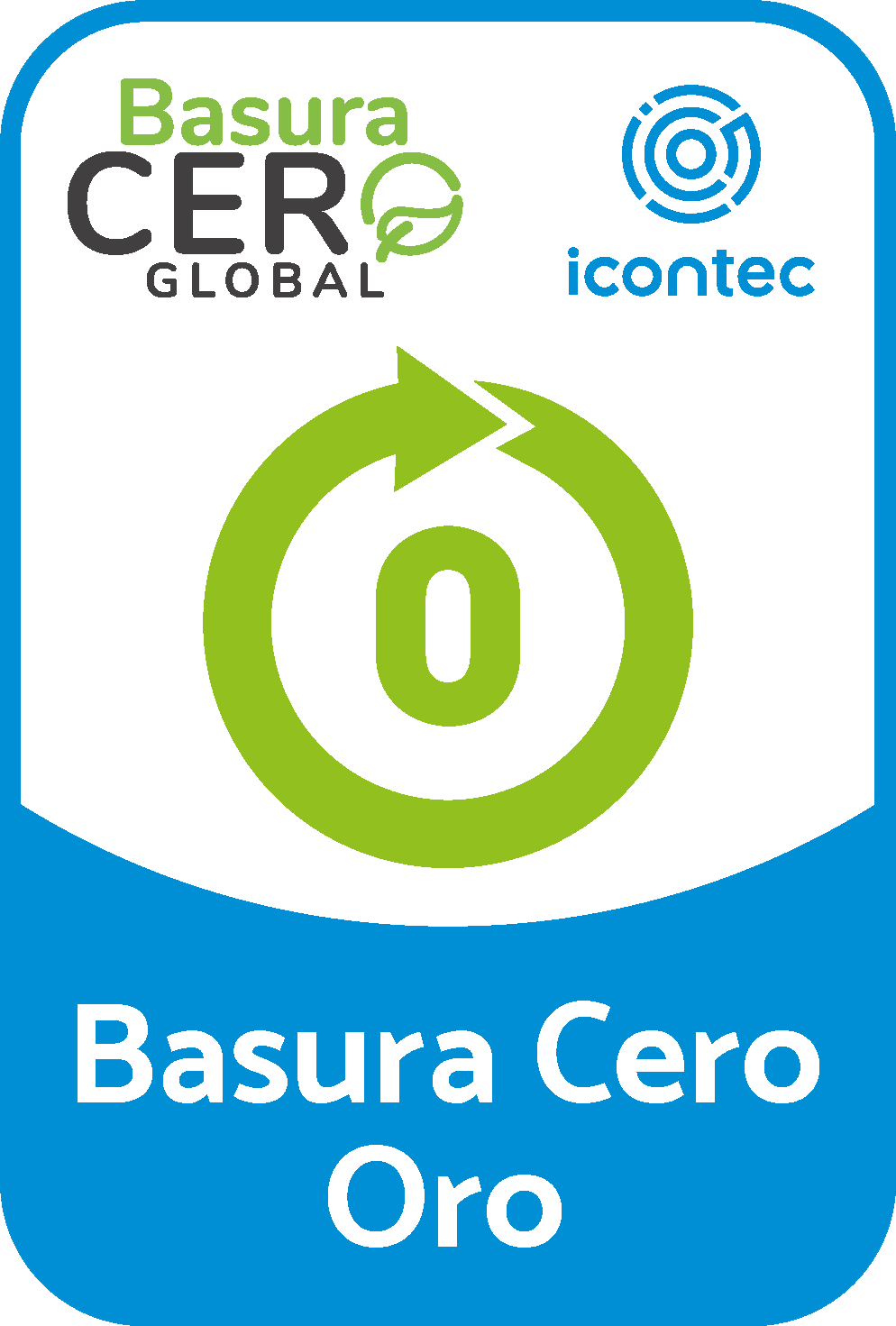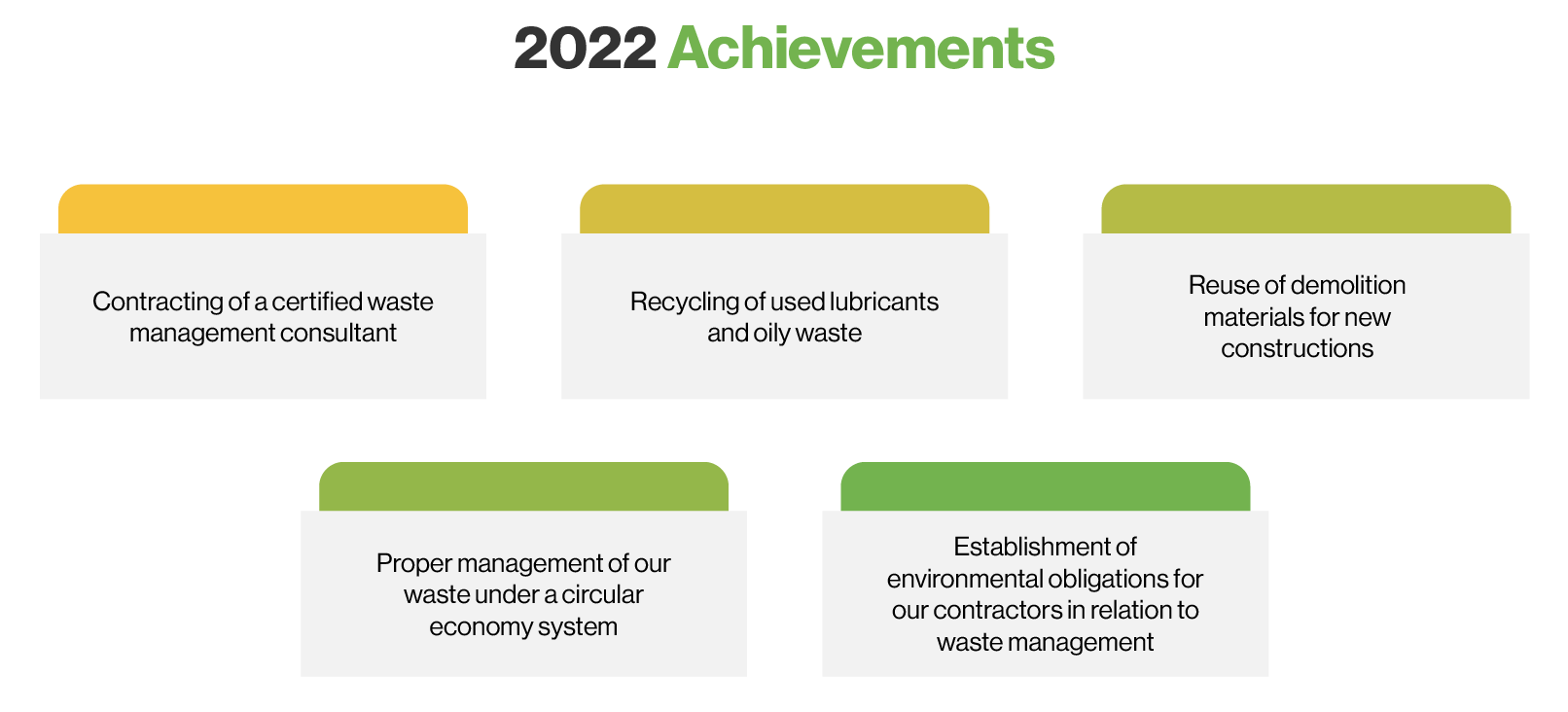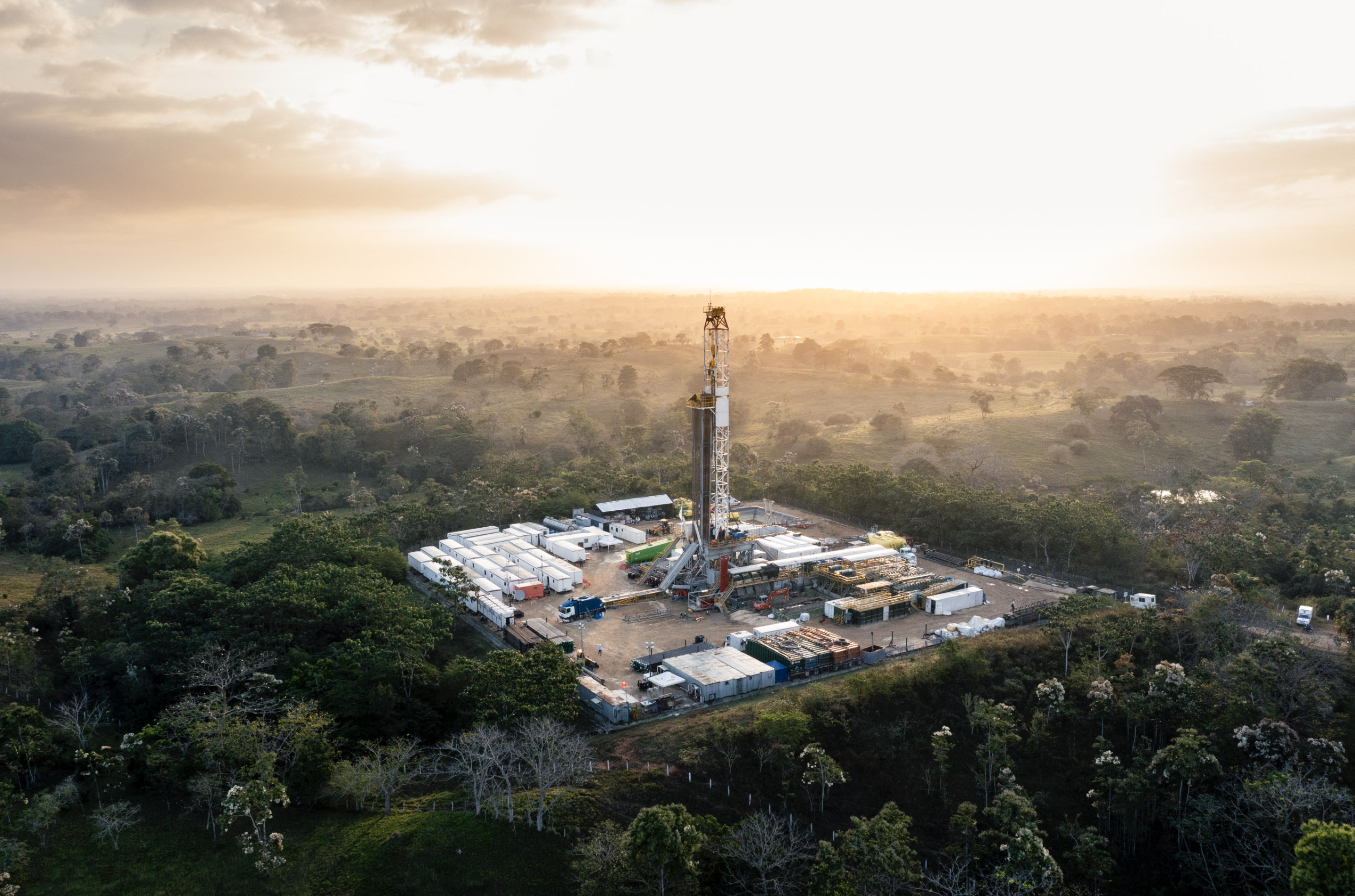Waste Management
At Canacol, we approach waste management with a proactive and sustainable mindset guided by the principles of a circular economy. Acknowledging the importance of minimizing the environmental footprint of waste from our operational activities, we actively strive to implement innovative and responsible practices that emphasize reduction, reuse, and recycling.
Aligned with the National Circular Economy Strategy (ENEC), we are committed to integrate in our practices the valuation of waste. This involves the reuse of construction and demolition waste (RCD), excavation materials, fostering closed material cycles, and extending the lifespan of equipment. Notably, our management approach emphasizes cogeneration, as we endeavor to convert waste into valuable energy sources. Furthermore, we emphasize that all waste generated from drilling activities is treated using natural dewatering methods, exclusively utilizing biodegradable absorbent polymers. This approach has enabled us to eliminate the need for parent material and reduce the demand for additional disposal space.
Our comprehensive waste management is conducted across the entire value chain, prompting us to advocate for sustainable and responsible practices among our suppliers. To ensure excellence in performance, we have established an environmental addendum that outlines both general and specific guidelines for activities conducted by our suppliers, especially those that have environmental implications. With respect to waste management for our suppliers, we require the following:
- Delivery of an Environmental Quality Plan (EQP).
- Compliance with the solid and hazardous waste management plan established by the Company.
- Licenses or permits for final disposal of hazardous, organic, and non-reusable waste, both from operated and subcontracted activities.
- Contingency Plan of the hazardous waste transportation company and administrative act approving the PDC before the environmental authority.
- Construction and demolition waste management plan specifying if waste will be taken to landfill or will be reused if it is approved by the company's environmental department.
Our Objectives
Canacol has set the following goals in relation to solid waste:
 |
|
Our Achievements
Below we present our achievements in waste management.
For further information, please refer to the 2022 ESG Report
No Hydrocarbon Spills
We operate the Rancho Hermoso oil field through a participation agreement with Ecopetrol, with Ecopetrol holding the environmental license under its contract with the ANH. Canacol is responsible for ensuring compliance with environmental regulations. In 2022, Canacol remained incident-free with regards to hydrocarbon spills Data on hydrocarbon spills were audited by the National Authority of Environmental Licenses (ANLA) and the ANH. Our strategy for spill identification and prevention involves ongoing monitoring of our wells, collection systems, and plants. Furthermore, we maintain a robust mechanical integrity and maintenance system.
| Proper management of our waste under a circular economy system. |
Establishment of environmental obligations for our contractors in relation to waste management.
|
For further information, please refer to the 2022 ESG Report


